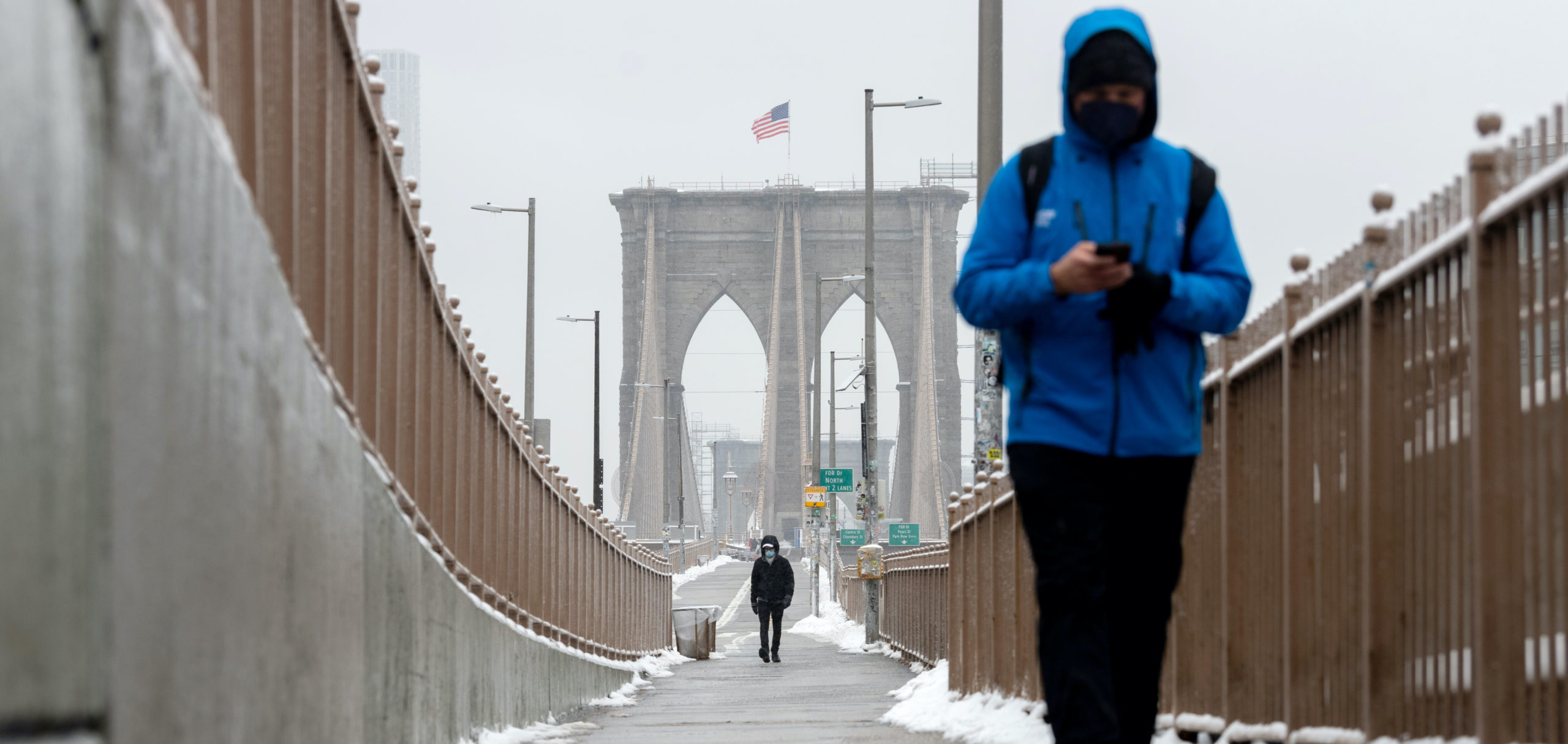In the US, the divide over Covid-19 restrictions is often cast as a matter of red versus blue states. Republican states like Florida have banned vaccine passports and school mask mandates, and have heavily restricted the ability of employers to mandate vaccination for their employees. In blue states, and especially in deep-blue cities like New York and Washington, D.C., mask mandates are the norm and patrons are required to show proof of vaccination to enter a bar, eat indoors at a restaurant, or go to a movie theatre or gym.
Or at least, that’s what the law says. In practice, in vast swathes of America’s blue cities, these rules are entirely theoretical. I live in New York, and stringent Covid restrictions are almost exclusively the preserve of affluent (and predominantly white) neighbourhoods — most parts of Manhattan, plus the expensive, heavily gentrified areas of Brooklyn.
In Prospect Heights, where the median sale price of a home is $950,000 and the vaccination rate is 92.68% mask mandates are strictly enforced in all indoor settings. Most residents have voluntarily upgraded to N95s, and many of them have resumed masking outdoors. Businesses check vaccine cards and photo I.D.s as a matter of course. When I saw Licorice Pizza at a swanky local movie theatre, I was informed that the concession stand had been closed so that patrons wouldn’t be tempted to remove their masks to eat popcorn or take sips of water.
By comparison, my own neighbourhood, Ridgewood, Queens (median sale price: $646,000, vaccination rate: 78.44%), feels as if it’s a different country. Indoor mask compliance is closer to 50%, and entirely voluntary — I’ve never witnessed an employee ask a patron to mask up or shoo a maskless customer out of an establishment. The vaccine pass is, similarly, almost totally unenforced, except in the hip establishments that cater to young creatives, most of them concentrated in the western portion of the neighbourhood bordering Brooklyn. My gym, on the Hispanic-and-white-ethnic east side, is entirely maskless, and takes a “don’t ask, don’t tell” attitude toward vaccination. When I expressed my gratitude to one of the gym’s employees for the mask-optional policy, she replied, in heavily Polish-accented English, that we were all adults and could make our own decisions.
Pandemic restrictions may be a partisan divide, but they are also, increasingly, a class divide. Even within one of America’s deepest-blue cities, strict adherence to Covid precautions has become a symbolic gesture among affluent, vaccinated white people — in other words, those least at risk from the virus. But among the people who are, objectively speaking, more at risk — minorities, members of the working class — the attitude seems to be: it’s time to get on with life.











Join the discussion
Join like minded readers that support our journalism by becoming a paid subscriber
To join the discussion in the comments, become a paid subscriber.
Join like minded readers that support our journalism, read unlimited articles and enjoy other subscriber-only benefits.
Subscribe